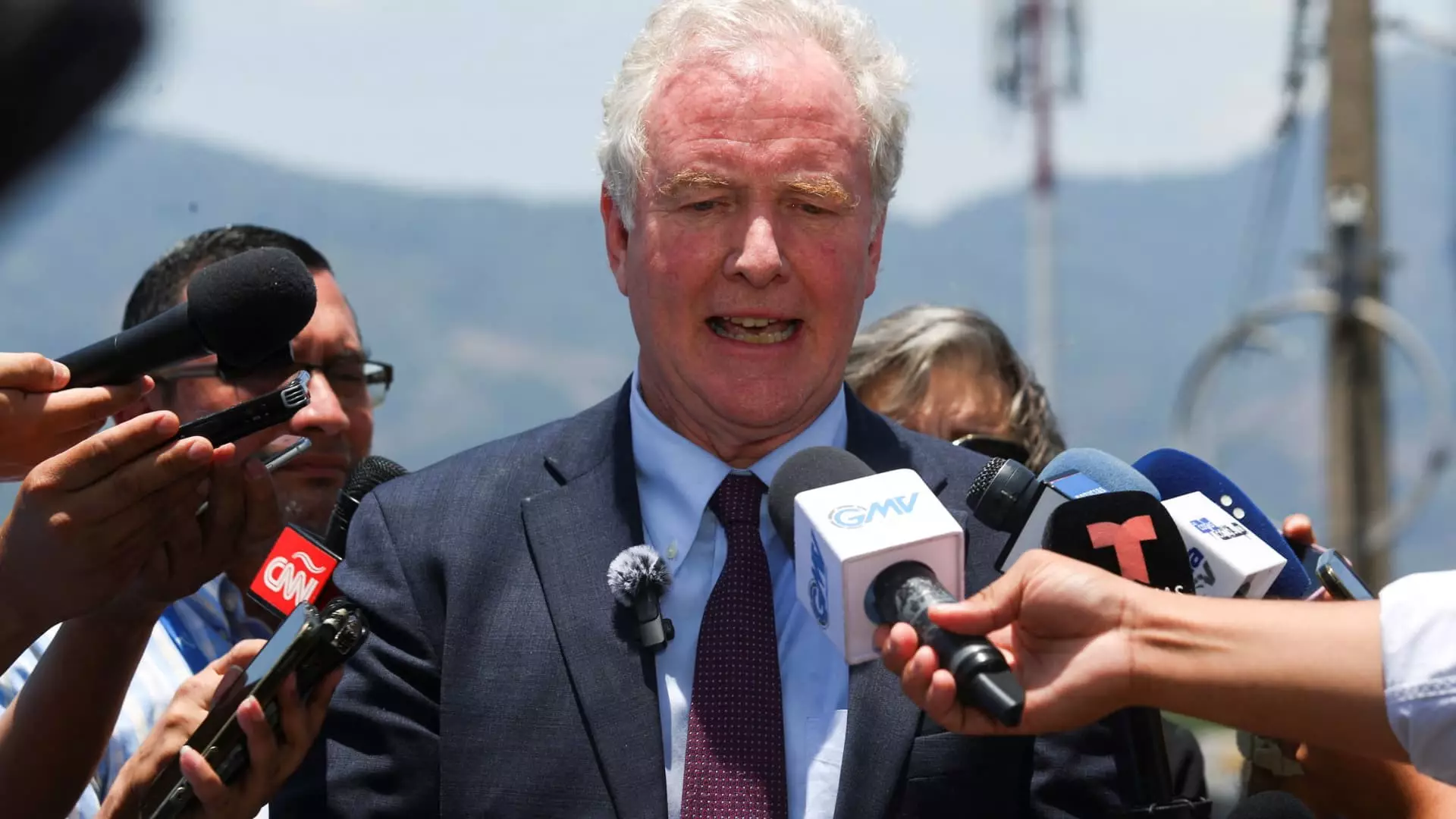The recent developments in the saga of Kilmar Abrego Garcia, a deported Salvadoran man, expose not merely a bureaucratic error but a haunting reflection of systemic injustice found in the depths of U.S. immigration policy. As Sen. Chris Van Hollen boldly steps into the fray, he shines a spotlight on the painful truths faced by many individuals caught in a web of political maneuvering, particularly under the previous Trump administration. With every meeting, every statement, and every denial of basic rights, we inch closer to understanding profoundly how the machinery of government can go awry, disregarding fundamental human dignity for the sake of expedient governance.
The baffling circumstances surrounding Abrego Garcia’s deportation, which the Trump administration hastily attempted to dismiss as a mere mistake, echo far beyond an isolated case. This is not just about an individual; it is indicative of a broader narrative—the cruel and often arbitrary decisions that render human lives disposable. The pain inflicted upon families is not merely collateral damage; it is the direct result of policies that prioritize political correctness and nationalistic fervor over humanity, empathy, and justice.
Political Obstacles: A Game of Power
Sen. Van Hollen’s insistence on confronting the situation in El Salvador unravels the countless barriers erected not only by bureaucracy but also by power dynamics that refuse the basic recognition of international justice. His thwarted attempts to access a detention facility signal an alarming reality—that even when a country stretches its hand for justice, it may be rebuffed by an unyielding system designed to shield egregious practices. The denial of entry to Abrego Garcia’s health affirmations speaks volumes about the precautions taken to conceal the truth. For how long must a family endure the uncertainty of a loved one’s wellbeing under the guise of national security?
Additionally, the refusal from Salvadoran authorities to facilitate communication between Abrego Garcia and his wife underscores a disquieting trend—communication barriers that serve to perpetuate trauma. The psychological toll on families like the Abrego family is not incidental; it is a manufactured reality that speaks to the broader implications of governmental policies that exacerbate fracture rather than promote healing.
The Role of Government: Compassion vs. Compliance
In the wake of a Supreme Court ruling ostensibly designed to right a wrong, the Bizarre resistance by the Trump administration to fulfill its legal obligations reflects an unsettling reality—compliance takes precedence over compassion. The letter from Maryland officials demanding verifiable proof of Abrego Garcia’s wellbeing highlights a desperate plea for accountability in a system that has often prioritized political expediency over the rights of individuals. Here we find the crux of the matter: accountability must transcend party lines. Those who wield power must be held responsible for the human consequences of their policies.
The wrongful deportation of Kilmar Abrego Garcia reminds us that the fight for justice is tangled in bureaucracy. Each individual case is symptomatic of a much larger ailment prevalent within our immigration system, where human lives are trivialized, and families are ripped apart. Our collective apathy in the face of such policy failures is perhaps the most concerning aspect of this narrative. As citizens, we are called to demand transparency and decency from those whom we entrust with power.
Hope Amidst Turmoil
However, the efforts of individuals like Sen. Van Hollen provide a glimmer of hope amid a disheartening landscape. Advocating for justice within a flawed system requires courage, tenacity, and a steadfast commitment to the belief that human rights should be sacrosanct. The determination shown by Van Hollen demonstrates the power of advocacy and the essential role of accountability in prompting change.
As the revelations continue to unfold regarding Kilmar Abrego Garcia’s situation, let us not shed our concern nor succumb to indifference because it hits too close to home. Every story like Garcia’s serves as a call to action for a united demand for justice and change in policy, navigated by empathy and compassion.
In this era of divisive politics, it is crucial that we reclaim our narrative and stand firm for the rights of all individuals, recognizing that true security is intertwined with humanity—an unwavering commitment to justice for every voiceless soul finding their way through the labyrinth of immigration.

Leave a Reply